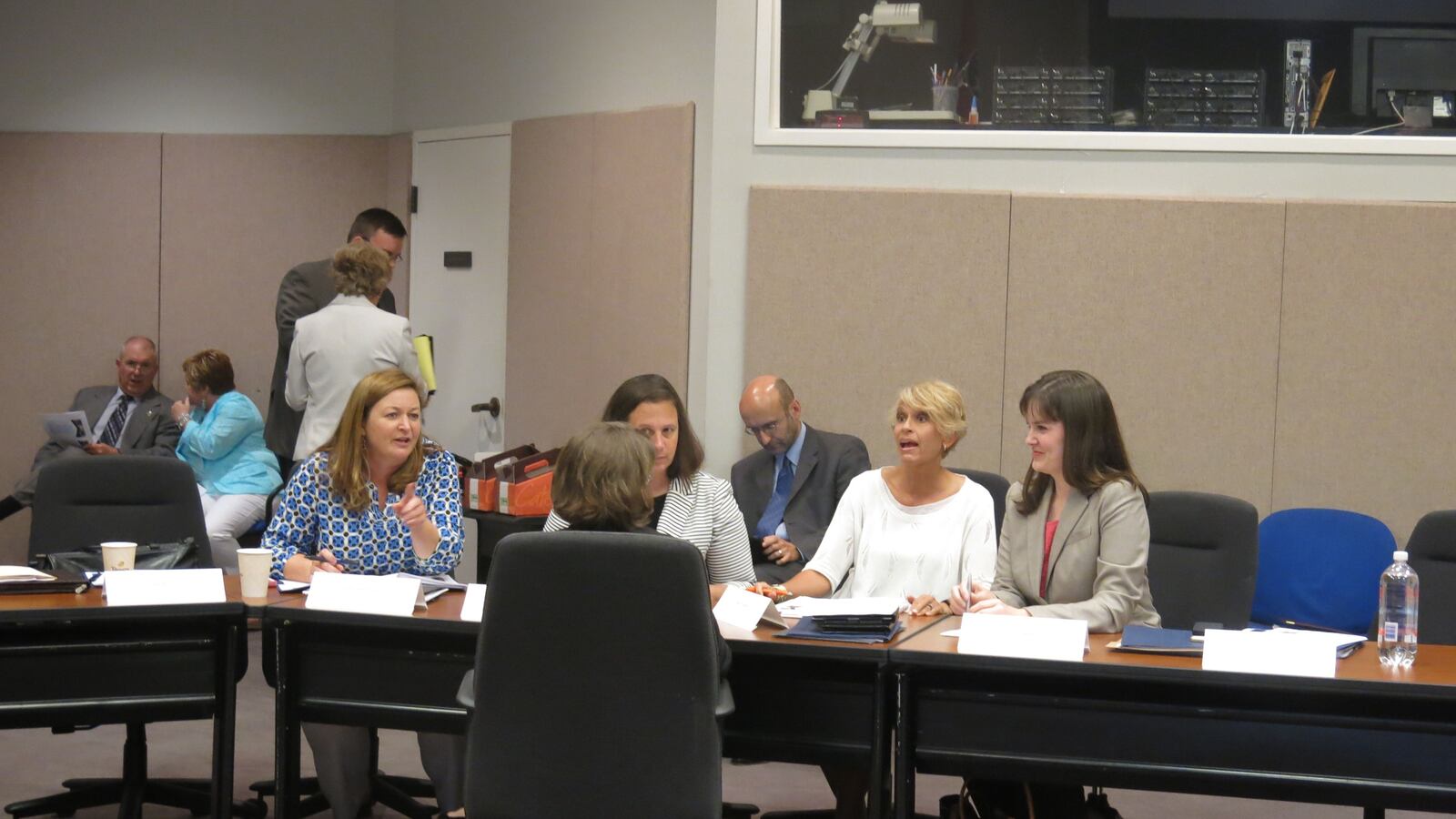Amid concerns that Tennessee is over-testing its students, a state task force recommended on Tuesday eliminating the option to test kindergarten and first-graders, as well as dropping two mandatory college preparatory tests for eighth- and 10th-graders.
The panel, charged with reviewing K-12 tests and testing policies, also recommended releasing test questions from the Tennessee Comprehensive Assessment Program (TCAP), including the state’s new TNReady assessment, despite the likely high financial cost to the state.
The recommendations come as Tennessee makes a major shift in testing this year with the launch of the TNReady assessment in math and English language arts for grades 3-11. Tennessee students will begin next spring taking the Common Core-aligned test, which will replace the previous exam that doesn’t align with the state’s current academic standards.
The task force urged the release of TCAP questions in order to increase testing transparency — something that teachers have pushed for as tests have become more critical in Tennessee’s teacher evaluation process.
State Education Commissioner Candice McQueen said she was unsure of the cost for releasing test questions, since developing new questions each year likely would be expensive. But, she said, the cost is worth it to build trust among students, parents and teachers.
“This is a new time, a new era, and so we believe transparency is more important than ever,” McQueen said during a morning press briefing on the report.
The recommendations reflect concerns raised in other states about the time spent increasingly on standardized testing. Across the nation, thousands of students opted out of end-of-year, Common Core-aligned tests. While frustrations over testing in Tennessee have been more muted, critics have charged that the state and local districts have created a culture of “over-testing,” prompting McQueen to convene the task force last March — one of her first actions since becoming commissioner in January.
The panel, which completed its work in August after six months of study, discussed topics ranging from testing anxiety to the number of tests administered by districts. Members included teachers, superintendents, elected representatives, a parent and a student, as well as five Department of Education officials. Their recommendations will go to the legislature and the State Board of Education.
The panel’s work focused on four themes: Reducing unnecessary or redundant student tests; transparency in testing; aligning tests to postsecondary and workforce expectations; and supporting districts around test scheduling and logistics.
“Assessments help educators measure student learning, but we must ensure that the assessments we invest our time and resources in are providing meaningful and actionable information to teachers, parents, and students to actually help improve student achievement,” McQueen said in a press release. “As I have traveled the state listening and learning from teachers and parents, I have heard repeatedly that we must make sure that we aren’t duplicating state and district efforts on assessments that take away from important instructional time in the classroom.”
"... We believe transparency is more important than ever."
Candice McQueen, Tennessee Education Commissioner
In addition to eliminating annual standardized tests for kindergarten and first-graders, the panel recommended dropping the mandatory EXPLORE test for 8th-graders and PLAN test for sophomores in high school, which are both created by the ACT testing corporation. However, the task force recommended the state should continue to require high school students to take the ACT exam used for college admissions, which briefly came under fire this spring in the legislature.
Though the task force discussed the 2-year-old RTI2 program, which requires frequent, short tests called screeners to identify student needs early, members recommended only that the State Department of Education further study the screeners’ impact on kindergarten and first-grade students.
The task force also recommended that the department should guide schools in reducing student testing anxiety.
“Everyone has a story of students who had some testing anxiety, and wanting to be better able to support that student,” McQueen told reporters. She said she hoped keeping a normal atmosphere on testing days and reducing the amount of “drill and kill” test prep would reduce stress for students, and maybe even for their teachers.
“Your test prep is great teaching and learning, and what you do during test day should feel like what you’re doing any other school day,” she said.
Here’s the whole report:

